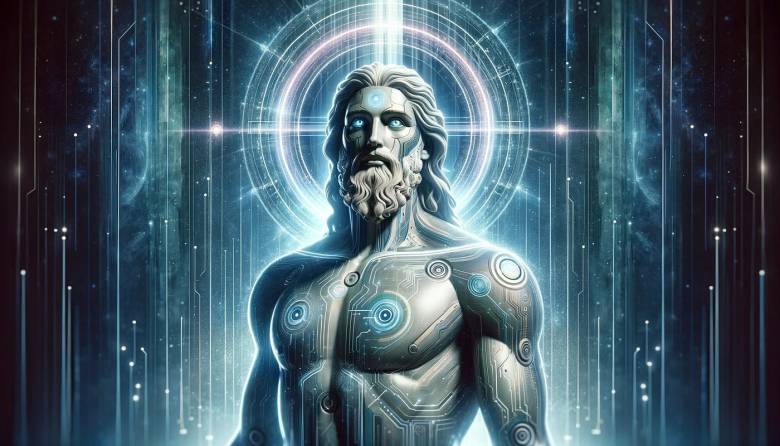Understanding the Divine Presence in the Digital World: Between Technology and Theology

1. **Religion in the Virtual World: The Divine Presence on Digital Platforms**
- As technology progresses, many churches, mosques, temples, and other religious communities have started adapting to digital platforms. Online worship services, such as Mass or sermons, have become an essential part of people's spiritual lives, especially during the COVID-19 pandemic. This raises the question of how divine presence is understood in the digital space.
- **Example article**: "Online Church: Is God Present in a Virtual Mass?" that discusses whether online worship can fulfill spiritual needs and if the spiritual experience in a digital space can be considered equivalent to physical worship.
2. **Artificial Intelligence and the Existence of God: Can Technology Create the Divine?**
- The discussion surrounding artificial intelligence (AI) and its relationship to theology is increasingly prominent. Some theologians and scientists are questioning whether AI, which is becoming more advanced, could replicate or even create "holiness" or "the divine." This is also tied to ethical and moral concerns about creating machines that resemble humans.
- **Example article**: "AI and Theology: Can Machines Understand God?" that explores AI's potential to comprehend spiritual concepts and morality.
### 3. **Metaverse and Spiritual Existence: What Does It Mean to Worship in a Virtual World?**
- With the rise of virtual worlds like the metaverse, some churches and religious organizations are designing digital worship spaces on virtual platforms. This brings up the question: how does worship in the metaverse affect our understanding of God’s presence? Can God be "encountered" in a digital space created by humans?
- **Example article**: "Church in the Metaverse: Building Divine Presence in a Virtual World" that explores the trend of churches and worship in the virtual world and how people experience spiritual closeness in a digital space.
### 4. **Technology and Religious Ethics: Facing Moral Dilemmas in the Digital Age**
- One theological question related to technology concerns how religious ethics are confronted with technological advancements. For example, does technology like cloning, genetic engineering, or even using technology to extend human life align with religious teachings? Theology requires reinterpretation to address moral issues raised by technological innovations.
- **Example article**: "Religious Ethics in the Face of Technological Revolution: Between Progress and Divine Teachings" which discusses how technology is changing religion’s views on life, morality, and death.
### 5. **Digitization of Sacred Texts: Reading God's Word Through Technology**
- Many holy books and religious texts are now available in digital formats, making it easier for people to read and study religious teachings. Technology has also facilitated the creation of apps and software that help people pray, meditate, or remember prayer times. This raises the question of whether reading sacred texts digitally is the same as reading the printed versions in terms of God's presence.
- **Example article**: "Sacred Texts in Hand: Touching the Divine Presence Through Technology" that discusses the impact of digitizing sacred texts and how people feel spiritual closeness through digital media.
### 6. **Robot Priests and Pastors: Can Machines Replace Religious Leaders?**
- Some recent innovations in robotics have led to the creation of robot priests, pastors, or religious leaders capable of delivering sermons or religious services automatically. This sparks a theological discussion on whether machines can lead worshippers in prayer or if human roles as spiritual leaders remain irreplaceable in the divine presence.
- **Example article**: "Robot Priests: Can Technology Replace Spiritual Leadership?" that explores the pros and cons of robots delivering spiritual services.
### 7. **Divine Presence Amidst Digital Life: A Theological Perspective**
- The digital world is increasingly changing the way people interact, but how does theology view the concept of God’s presence in a digital world that is invisible? This discussion involves classical theological views on God’s presence in the created universe and how technology might alter or reinforce these perceptions.
- **Example article**: "Seeking God in the Digital World: Can Divine Presence Be Touched by Technology?" that discusses theological perspectives on how God might be present in the digital world.
To find relevant news related to this topic, you can access major news outlets like **BBC**, **The Guardian**, **The New York Times**, or tech-focused sources like **TechCrunch**, **Wired**, and **MIT Technology Review**. These platforms often feature articles discussing the intersection of religion and technology and how digital advancements are affecting spiritual understanding.


.png)
